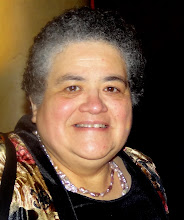He began to see that silence in the face of repression was acquiescence.
Thirty years ago, March 24, 1980, Archbishop Oscar Arnulfo Romero was assassinated as he celebrated Mass, by a member of Roberto D’Aubuisson’s death squads. The archbishop’s execution was only the most visible of a host of assassinations.
Archbishop Romero’s path was unique. He had started out as a quiet scholar who had little involvement with the world. His superiors picked him to be archbishop because they were sure they could count on him to obey their orders. Until that time, the Catholic Church in Central America had sided firmly with the elite landowners and upper classes. The priests and nuns who got involved with the “Liberation Theology” movement ran into opposition and were censured by Church leaders. Archbishop Romero was drawn into conflict with the government when his colleagues in the movement such as Fr. Rotelio Grande, were murdered by the death squads. He began to see that silence in the face of repression was acquiescence.
In 1980, the Civil War, which had been percolating since the mid-1970s, exploded into a conflict that would kill 75,000 Salvadorans. On December 2, 1980, four church women from the United States, Maryknoll Sisters Ita Ford and Maura Clark; Ursuline Sister Dorothy Kazel, and lay missioner Jean Donovan, were kidnapped, raped and murdered in El Salvador. In El Mozote, in Morazán department, El Salvador, on December 11, 1981, almost 1000 innocent civilians were massacred, the buildings of their village set afire with the bodies of the dead inside. As Alma Guillermoprieto, a Mexican-American journalist who was one of the first to see the site of the massacre, wrote, “countless bits of bones — skulls, rib cages, femurs, a spinal column — poked out of the rubble.” On November 18, 1989, in one of the most infamous instances, six Jesuit priests, their housekeeper and her daughter, were slaughtered. The massacres, murders and assassinations continued unabated until a peace treaty was finally signed in 1992. Even then, the violence did not stop: the repatriation of Salvadorans and their children deported from the United States brought a new kind of bloodshed to El Salvador. Many of those children had grown up into criminal gang activity in Los Angeles, forming Mara Salvatrucha or M-13, and brought the violence back to their own country, making the streets almost as dangerous as they were during the civil war (officially, 1980-1992).
But El Salvador had never really been at peace since January 22, 1932, when the government engaged in the massacre known as La Matanza; approximately 30,000 indigenous people were murdered by General Maximiliano Hernandez Martinez. It was more desirable to the government and the elites to kill the peasants than to feed them. El Salvador has such a gruesome history of state-sponsored terrorism, i.e., the government killing its own citizens, that one can only wonder what drives the violent inclination of the Salvadoran people.
When I first graduated from college, I wanted to travel but when I thought of going to Europe, I had a niggling fear. Most of those countries had killed or betrayed their Jews. As Rod Steiger’s character in The Pawnbroker said, “Europe is a graveyard.” Did I want to visit Paris with its splendid Eiffel Tower but whose Vichy government had collaborated with the Nazis? Or Germany, with its beautiful Bavarian castles and Nazi crematoria? Or Italy, one of the cradles of our civilization, but also the place where Mussolini gathered up the Jews and shipped them off to be killed in Germany?
The sad fact is that you can spin the globe and wherever your finger lands there has been some terrible war or massacre, often by one faction against another within the same country. Making my way east to China and India, or south to Africa, I can name murderous regimes in almost any place. In this hemisphere, the sad fact is that 90% of the indigenous people died at the hands the conquerors, either from combat or from the transmission of diseases that the inadvertently spread. If only the killing had stopped there!
 Archbishop Oscar Arnulfo Romero, (August 15, 1917 – March 24, 1980) lying in state
Archbishop Oscar Arnulfo Romero, (August 15, 1917 – March 24, 1980) lying in state
Thirty years after his murder, Archbishop Romero’s words call out not just to the people of El Salvador, but to the governments and leaders of the world:
I would like to make a special appeal to the men of the army, and specifically to the ranks of the National Guard, the police and the military. Brothers, you come from our own people. You are killing your own brother peasants when any human order to kill must be subordinate to the law of God which says, "Thou shalt not kill." No soldier is obliged to obey an order contrary to the law of God. No one has to obey an immoral law. It is high time you recovered your consciences and obeyed your consciences rather than a sinful order. The church, the defender of the rights of God, of the law of God, of human dignity, of the person, cannot remain silent before such an abomination. We want the government to face the fact that reforms are valueless if they are to be carried out at the cost of so much blood. In the name of God, in the name of this suffering people whose cries rise to heaven more loudly each day, I implore you, I beg you, I order you in the name of God: stop the repression.


No comments:
Post a Comment